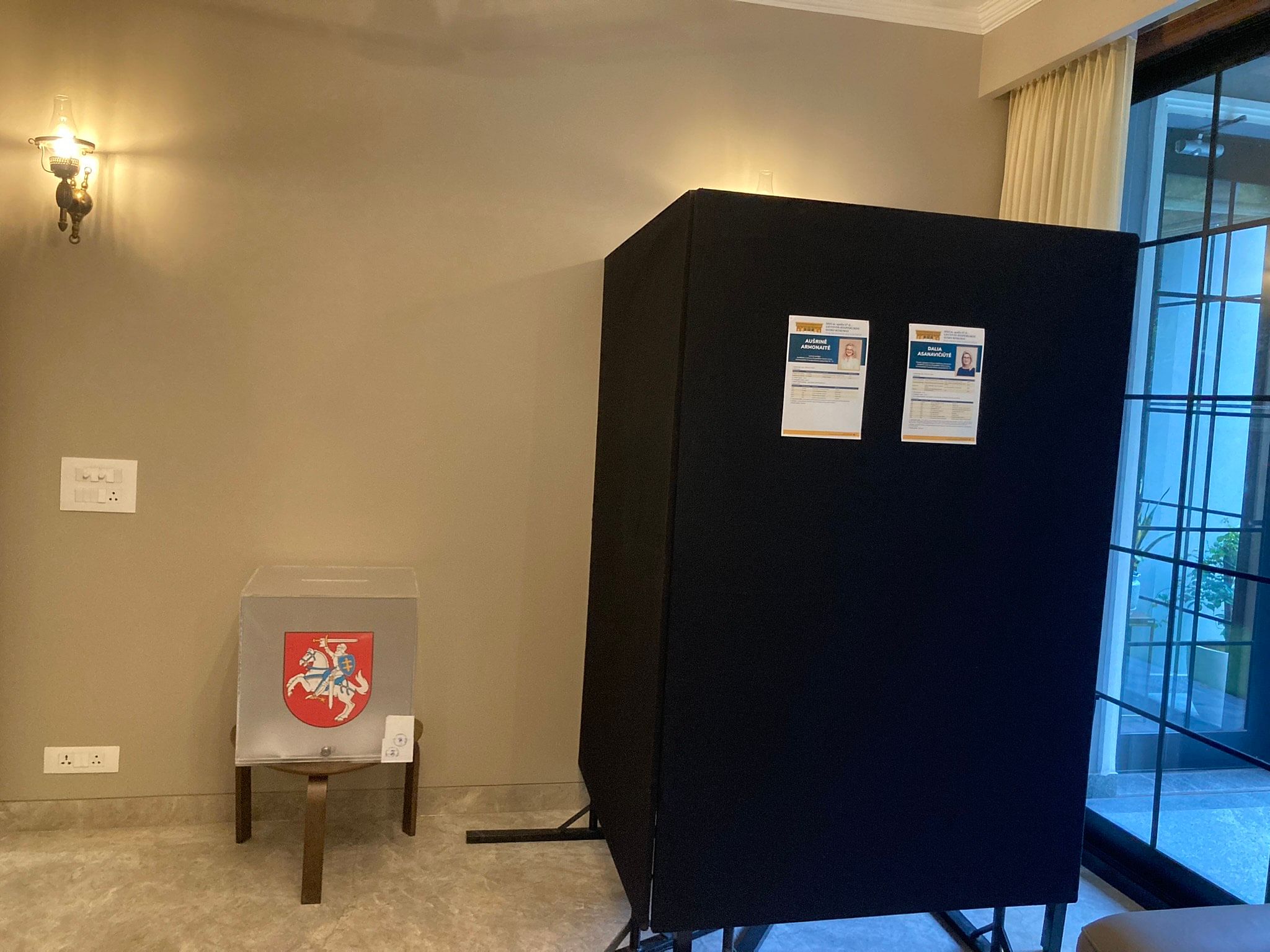New Delhi: This year has become an election year for the world, with over 60 countries, including India, holding or planning elections by the year’s end. Among them are major economies like the UK, France, Japan, the EU, Indonesia, Taiwan, and Mexico—meaning nearly half the global population will have had the chance to vote. On Tuesday, the US, too, joins this democratic wave, with around 240 million Americans eligible to elect its next President, as well as members of the House of Representatives and the Senate. And its citizens overseas will be joining in too.
There are approximately 4.4 million American citizens living abroad, of whom around 2.8 million are adults eligible to vote Tuesday, according to data published by the Federal Voting Assistance Program (FVAP)—a programme established by the Department of Defense (DoD) to ensure American citizens overseas, including members of the armed forces, can cast their vote.
A spokesperson from the US Embassy in New Delhi explained to ThePrint that elections are run at the state level. Voters must communicate directly with their state of residence to register, request a ballot and vote.
American embassies will not serve as a polling place. However, the US Embassy in New Delhi and its consulates across the country will be equipped with ballot collection boxes, allowing American voters living in India a place to drop off their ballots, which will be mailed to the states accordingly.
“Because voting rules and regulations vary in accordance with U.S. citizen’s state of residence in the country, we recommend they visit FVAP.gov and their state’s election office for instructions on how to vote while abroad,” the spokesperson added.
There are around 56,000 US citizens living in north, central and south Asia who, as of 2022, have been eligible to vote in the US elections, according to the FVAP.
Voting rates of the overseas citizens touched around 10.6 percent during the 2022 midterm elections, and for those living in north, Central and South Asia—which includes India—only around 4.5 percent of eligible voters actually cast their absentee ballots last election.
The presidential election is expected to be a very close race, with recent opinion polls indicating that the Democratic Party candidate and current Vice-President Kamala Harris is leading against her Republican opponent, former President Donald J. Trump, by around one percentage point nationally.
However, Trump is marginally leading in five of seven battleground states crucial for victory in the electoral college—Arizona, Georgia, Michigan, Nevada, North Carolina, Pennsylvania, and Wisconsin—according to the latest New York Times/Siena polls.
In an increasingly globalised world, there are a number of citizens living abroad, and in such tight races, countries attempt to create methods by which every voter, who is eligible to vote, can cast their adult franchise.
For some countries, their embassies and missions abroad are converted into polling booths. For nationals from the US and the UK, there exists the absentee ballot system, which allows American and British nationals to mail in their votes. The UK also allows its citizens to vote by proxy.
Embassies doubling up as polling stations
This year, the Lithuanian embassy in New Delhi saw its ambassador, diplomats and consular officials double up as polling officials five times—for the Presidential, Parliamentary and European elections.

“We are always happy and proud to assure opportunities for every Lithuanian voter to perform their democratic duties despite their being far away from Lithuania. Every citizen’s vote is important for us,” Diana Mickevičienė, the Ambassador of Lithuania to India, told ThePrint.
“In its 16 years of existence, the Embassy of Lithuania in New Delhi has organised elections quite a number of times. This year alone, it was five times, which included two rounds of Presidential elections, one round of voting for the European Parliament election and two rounds of the general election,” she added.
For all five rounds, the embassy had a polling booth and a ballot box where Lithuanian citizens could either turn up to cast their votes or request a mail-in ballot, which was then returned to the mission, where the final counting was done before being submitted back home to Vilnius.
On 20 October, Moldova, a European nation, had a polling booth at its embassy in New Delhi for both the presidential elections and an extremely important referendum on whether it should join the EU.
The “yes” camp won the referendum, in an extremely tight election, to enshrine in the Moldovan Constitution its intent to join the EU. Around 50.35 percent of the voters voted yes, while the rest voted no.
Another country that held a much larger voting operation across India for its presidential elections was Iran. After the death of its president Ebrahim Raisi in a helicopter crash in May, the nation had elected its next president. The Iranian mission in India set up four polling stations across the country—in New Delhi, Hyderabad, Mumbai and Pune—to allow about 5,000 Iranians living in India to vote. Around 850 Iranians living in India participated in the presidential elections, a source from its mission told ThePrint.
For Tehran, each of its missions set up a seven-member executive committee, including a member representing the guardian council and a representative from the ministry of interior. The seven-member committee worked under the supervision of the ambassador in New Delhi or consuls in its other missions to conduct the election across India.
The final results were then communicated to Tehran, before the sealed ballot boxes were sent back home by flight.
(Edited by Radifah Kabir)







What about India for non resident Indian citizens ?